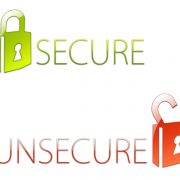The Pros and Cons of Alternative Investing with a Self-Directed IRA
Are you tired of the limitations of traditional retirement investments? Self-Directed IRAs might be the solution you’ve been looking for. With a Self-Directed IRA, you can invest in a broader range of assets, including real estate, private equity, and precious metals. However, with this increased flexibility come potential drawbacks. In this blog post, we’ll explore the pros and cons of alternative investing with a Self-Directed IRA—and what you need to know to emphasize the positives and mitigate the negatives.
The Pros of Alternative Investing with a Self-Directed IRA
- Diversification: One of the main benefits of alternative investing is diversification. Investing in assets like real estate and private equity can help reduce your overall portfolio risk. These assets often have a low correlation with traditional stocks and bonds, which means they may perform differently during market downturns—however, remember that any diversification strategy is at your own risk.
- Higher Returns: Alternative investments often offer the potential for higher returns than traditional investments. For example, investing in real estate can provide rental income, as well as appreciation of the property’s value over time. Private equity investments can offer high returns if the company is successful.
- Control: With a Self-Directed IRA, you have greater control over your investments. You can choose the specific assets you want to invest in, rather than relying on a fund manager to make those decisions for you.
Cons of Alternative Investing with a Self-Directed IRA
- Higher Risk: With the potential for higher returns comes higher risk, depending on the strategy you adopt. Alternative investments can be riskier than traditional investments because they often lack liquidity, meaning it can be more challenging to sell the asset quickly. Additionally, alternative investments can be more complex than traditional investments, making them harder to understand. (Note: you can mitigate higher risks by choosing to adopt a more cautious strategy with your Self-Directed IRAs. Remember: you’re the one in control here.)
- Higher Fees: Self-Directed IRAs can come with higher fees than traditional retirement accounts. Because you’re responsible for choosing and managing your investments, you may need to pay fees for things like property management or investment advice. Additionally, some Self-Directed IRA custodians charge higher administrative fees than traditional IRA custodians. (Note: You can mitigate higher fees by selecting a Self-Directed IRA administration firm who does not charge dynamic fees that increase as the size of your account also increases. Here at American IRA, we offer static fees that can give you more slack for building your wealth, not ours.)
- Limited Protection: Self-Directed IRAs are not protected by the same laws that protect traditional retirement accounts. For example, if you invest in real estate with your Self-Directed IRA and the property is sued, the IRA is the owner of the real estate. Additionally, if you make a mistake in your investments, you may face penalties or taxes. However, that’s a risk that applies to all retirement investing, and not just Self-Directed IRAs.
Planning for Your Retirement
Alternative investing with a Self-Directed IRA can be a powerful tool for retirement planning. With the potential for higher returns and greater control over your investments, it’s no wonder that Self-Directed IRAs are growing in popularity. However, you need to understand the potential risks and drawbacks before jumping in. Before making any investment decisions, it’s crucial to do your research and consult with a financial advisor. After all, a Self-Directed IRA administration firm like American IRA doesn’t offer specific investment advice—instead, we serve as a custodian on the account, carrying out buy/sell orders on the account’s behalf.
Interested in learning more about Self-Directed IRAs? Contact American IRA, LLC at 866-7500-IRA (472) for a free consultation. Download our free guide or visit us online at www.AmericanIRA.com.








